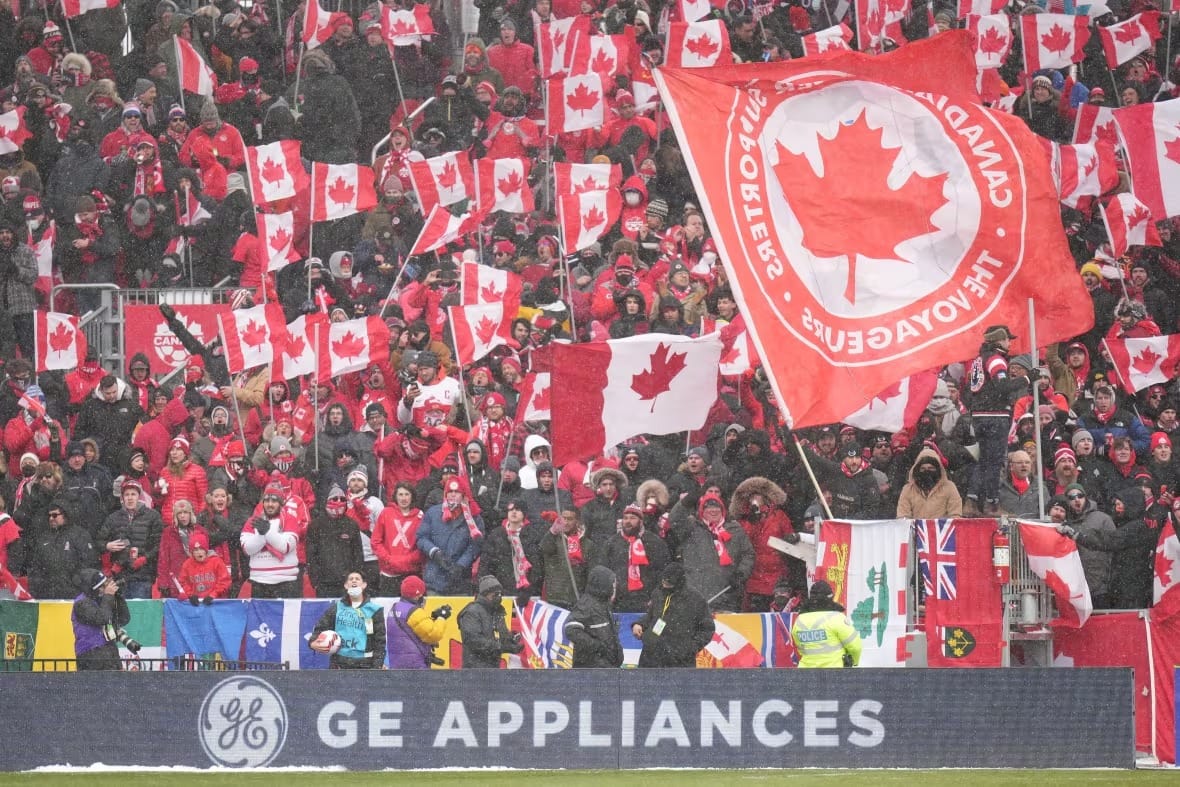'Where does the money go?' Canada Soccer gets a red card for its finances
Rising popularity, threats of bankruptcy don't add up, say former players, politicians and board members

Canada Soccer's recent Olympic espionage scandal has exposed years of internal strife, financial issues, and a lack of transparency within the organization. In nearly 40 interviews with individuals linked to Canada Soccer, details of infighting, financial mismanagement, and a controversial deal with a third party that limits profits for its teams have come to light.
Despite the success of Canada's national men's and women's teams, the organization has been embroiled in controversy. Many interviewees, including employees, players, former players, executives, coaches, and agents, chose to remain anonymous for fear of retribution. They raised concerns over the lack of transparency, public fund management, financial opacity, a secretive deal with a private firm, allegations of favoritism, widespread spying, and a toxic working environment.
A former executive described the situation as a "hornet's nest," with people keeping quiet. Experts argue that for two decades, Canada Soccer's leadership has focused on loyalty to its executives rather than the interests of the teams or transparency.
A prime example of this is the deal Canada Soccer struck with Canada Soccer Business (CSB) in 2019, which granted CSB broadcast rights for national team games and exclusive control over sponsorships and revenue. In exchange, Canada Soccer receives between $3 and $3.5 million annually, with an additional $500,000 during the 2024–2026 period due to Canada hosting the FIFA World Cup in 2026. Canada Soccer also spends $1 million annually to support the Canadian Premier League, which is owned by CSB.
While the details of this agreement have not been publicly disclosed, financial experts suggest the deal is highly profitable for CSB but lacks transparency. Players and board members alike have criticized the deal. The Canadian Soccer Players' Association has filed a $40-million lawsuit against 15 current and former board members, claiming the CSB deal constitutes negligence and a breach of fiduciary duty.
The contract's negotiation was largely led by former president Victor Montagliani, who later rose to prominence as the head of CONCACAF and a vice-president at FIFA. In 2018, CSB founder Scott Mitchell publicly thanked Montagliani for the deal, but board minutes from the time indicate that several members were uncomfortable with the terms. A former board member revealed that some sought more information before agreeing to the deal, but it was presented to them as a fait accompli.
When a parliamentary committee began investigating Canada Soccer's finances following the espionage scandal, the organization attempted to destroy all copies of the CSB agreement. This was met with strong opposition, and the committee did not accept the request. Liberal MP Anthony Housefather, a lawyer, discovered that the agreement had not been properly approved by the board, which he believes renders it invalid. He also criticized the contract's terms, which he argues deprive Canada Soccer of crucial revenue.
Bloc Québécois MP Sébastien Lemire expressed shock at the federation's defensive stance and efforts to conceal its financial dealings. He accused Canada Soccer of covering up the truth to protect personal interests.
Financial challenges persist for Canada Soccer, with players on both the men's and women's teams struggling to reach salary agreements despite the sport's increasing popularity in the country. In addition to its membership fees, which raise funds for the organization, Canada Soccer receives significant government grants, including nearly $4.8 million in 2023, much of which is directed toward women’s and youth programs.
Andrea Neil, a former captain of the women’s team, noted the longstanding culture of secrecy within Canada Soccer and criticized the lack of accountability regarding the organization’s finances. Financial expert Claude Mathieu also questioned the opaque financial structure, noting the lack of transparency regarding executive compensation and the use of government subsidies.
Mitchell, who leads CSB, maintains that his investments are helping raise the profile of soccer in Canada. He also defended the CSB-Canada Soccer deal, claiming it is beneficial for the sport in the country. However, Mathieu raised concerns about Mitchell's dual role in the deal, stating that taxpayers' money might be benefiting Mitchell’s private interests.
Philippe-Antoine Lupien, a sports economics specialist, acknowledged the business potential of the Canadian soccer market but questioned whether the CSB agreement was fair.
Canada Soccer has stated it is reviewing its agreement with CSB and has offered to modify the terms. The organization has also made changes to improve its governance and financial practices, including ending previous practices like purchasing electronics for board members. In early 2024, Canada Soccer appointed Kevin Blue as its new CEO. Blue has emphasized the importance of the national team players and is committed to improving the organization’s finances.





